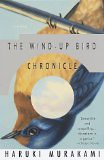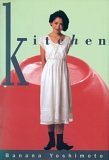












Library Wars: Love & War Kiiro Yumi, original concept Hiro Arikawa, translated from the Japanese by John Werry
This is a mega-review of vol. 1-13 (aka, the ones that are currently available in English)
The Library Freedom Act
Libraries have the freedom to acquire their collections.
Libraries have the freedom to circulate materials in their collections.
Libraries guarantee the privacy of their patrons.
Libraries oppose any type of censorship.
When libraries are imperiled, librarians will join together to secure their freedom.
In the not-too-distant future, Japan passes the "Media Betterment Act" which censors objectionable material. Librarians are against censorship and will fight to keep their collections free and available. Literally fight. Like, they made an army. To fight against the federal censors(and their army).
AND YOU WONDER WHY I LOVE THIS?!
I devoured this series. Like, read all of them in a week, often staying up way past bedtime because I COULD NOT PUT IT DOWN. I love the overall concept. Plus, not only is about people fighting to protect access to materials (with their literal lives!), but it's a shoju manga, so SO MUCH SEXUAL TENSION.
Our main character, Iku Kasahara wants to join the Library Defense Force to be like her "prince"-- a member who saved a book she wanted to buy from censorship. She has passion, but not a lot of skill and is driven hard by her Sargent Dojo (who, um, OBVIOUSLY is her "prince.") She eventually becomes the first woman on a super elite squad that has to both be an army fighter, but also an actual librarian. But, over the run of the series, this is far from the only relationship we see (I won't say my favorite, because it develops pretty late and is a bit of a spoiler.)
I love the politics and maneuvering the library forces do. I like the plotline where Kasahara's parents don't know what she does because she knows they won't approve. I love love love Kasahara's roommate, Asako Shibazaki. She's very beautiful and a bit aloof and a lot of people read her as shallow, but she has a lot going on beneath the surface. She's a librarian with some serious hidden talents. I love the way her character develops. (In fact, she might be my favorite character.)
I like that there are cultural end notes to explain things, and several bonus mangas at the end of most volumes to fill in some quiet moments.
The over-the-top melodrama of some of the relationship stuff gets old, but I'm starting to recognize that it's standard for a lot of shoju manga.
Overall though, I LOVE THIS SERIES and am trying to force all my coworkers to read it. (LIBRARIES BUILT AN ARMY TO PROTECT FREEDOM OF ACCESS FROM GOVERNMENT CENSORS. DUUUUUUUUUUUUUUUUUUUUUUUUUUUUUUUUUUUUUUUUUUDE.)
If I understand Wikipedia correctly, there are 15 total volumes in this series. 13 are out in English now, and the 14th comes out in October. Based on past publication schedules, I'm guessing the 15th will be out next April. My one regret? This is based on a novel series and the source material doesn't seem to be available in English.
Books Provided by... my local library
Links to Amazon are an affiliate link. You can help support Biblio File by purchasing any item (not just the one linked to!) through these links. Read my full disclosure statement.



















